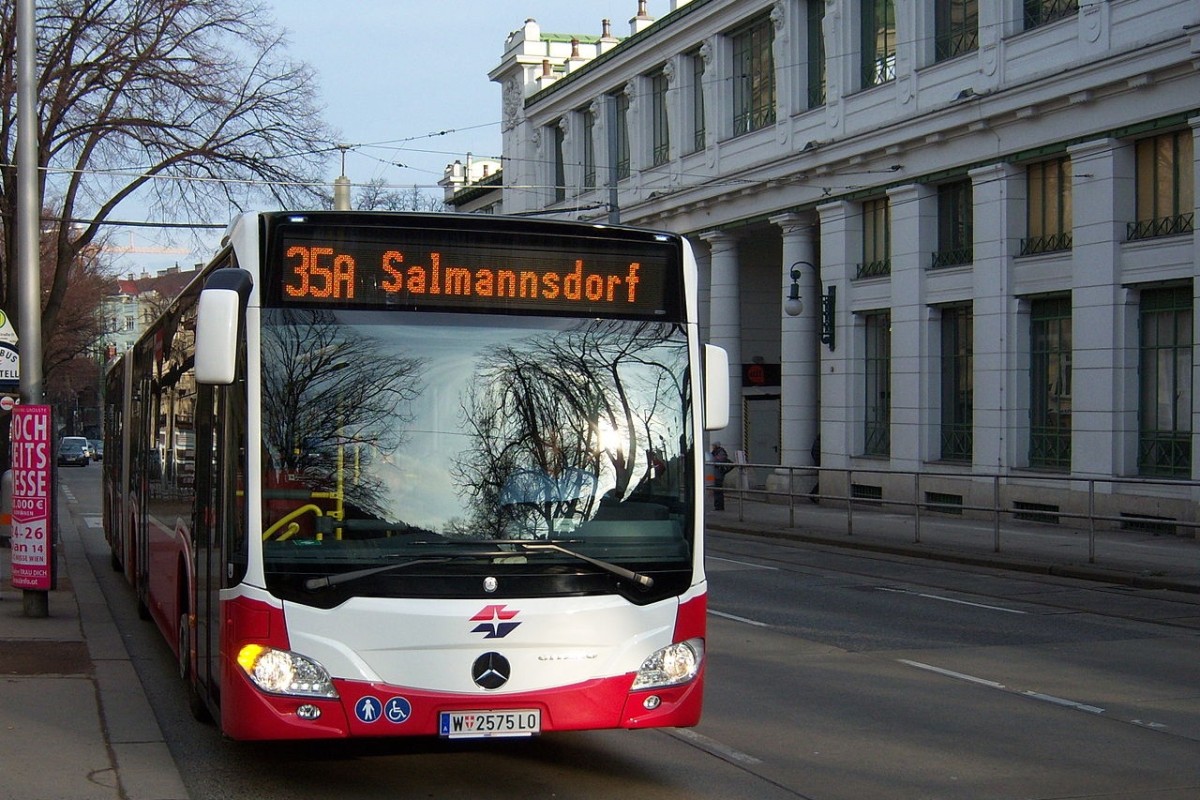Sponsored Content
Vienna Gets 70 Zero-Emission Buses
As part of its climate protection efforts, Vienna achieves a new small milestone. A total of 60 e-buses and 10 H2 buses are being purchased by Wiener Linien. The plan is to convert ten lines to zero-emission drives by 2025.
 The Wiener Linien invest in a new and larger bus fleet that is climate-neutral on the road. / Picture: © Wikimedia Commons, My Friend, CC BY-SA 3.0
The Wiener Linien invest in a new and larger bus fleet that is climate-neutral on the road. / Picture: © Wikimedia Commons, My Friend, CC BY-SA 3.0
Thanks to the subway and streetcar, 80 percent of passengers in Vienna are already emission-free because Wiener Linien's rail operations are purely electric. Now the public transport company is focusing on decarbonizing its bus fleet.
Nächster Halt: Nachhaltige Busflotte! Bis 2025 bekommen wir 60 E-Busse & 10…
or Log In
Fast News Search





